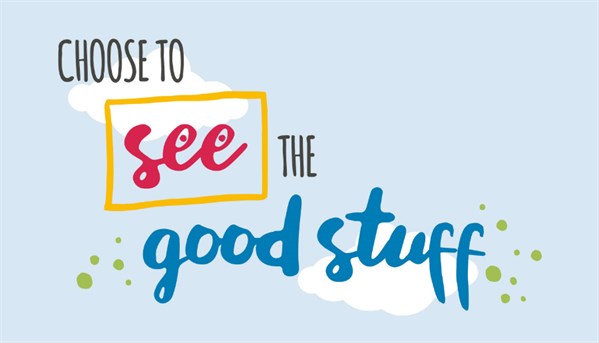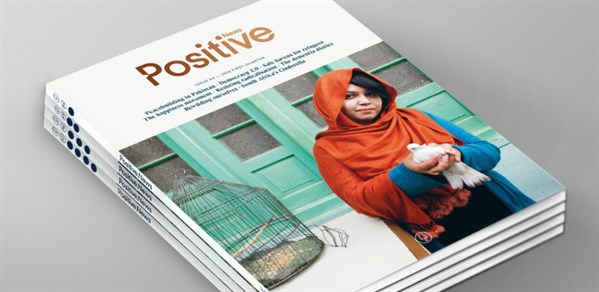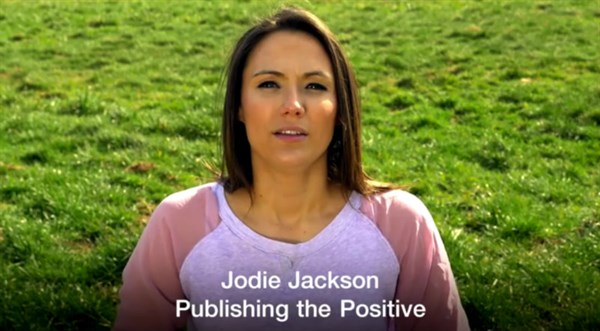Why the World Needs Constructive Journalism in 2017
12 Jan 2017 | Jodie Jackson

A new year brings new hope; a chance for us to make resolutions,
with the aim of improving ourselves or helping others around
us.
This on-going striving for collective improvement has seen our
society progress since the beginning of time. In his recent book Progress, Johan Norberg reminds us that
"we have made more progress in the last 100 years than in
the first 100,000".
This should give us hope for the future too. But we are being
told a rather different story about the world, thanks to the
overwhelming negativity of the news we consume, which focuses above
all on reporting the failings and problems in society.
In the 1960s, President Johnson complained about the negativity
bias in Time magazine to its publisher and editor, Henry Luce:
"This week 200.000 ethnic minorities registered in the South,
thanks to the Voting Rights Act. Three hundred thousand elderly
people are going to be covered by Medicare. We have a hundred
thousand young kids working in troubled neighborhoods. None of that
is in here!"
Luce replied: "Mr. President, good news isn't news.
Bad news is news".

This attitude is as common today as it was then, as the stories
considered most newsworthy tend to focus on war, corruption,
scandal, murder, famine, and natural disasters. Not only are these
negative stories chosen for publication over positive ones, they
are also given preferential display.
Although this may serve the commercial incentive of selling
newspapers - with sensationalized headlines to grab our attention -
too much of a bad thing can in fact be bad for us. As Dr. Ralph
Haskins, a journalism professor at the University of Tennessee,
explained:
"Prolonged exposure to bad news over
long periods can have detrimental effects on moods, attitudes,
perceptions and emotional health".
These detrimental effects are further exacerbated by the changes
in media technology, which have increased the frequency and
availability of news as well as increasing its "negative,
sensational and graphic nature".
A fundamental reason for this focus on negative news is credited
to the watchdog role that the media plays in society. This clearly
serves an important function of holding power to account and
shining a light on many ills in the world that need addressing,
forcing them onto the public agenda.
Humans are "hard-wired" to pay more attention, voluntarily or
involuntarily, to bad news than good news. We have an evolutionary
human survival instinct to monitor our environment for potential
threats or dangers, which require immediate attention.
But this is not the end of the story.

Readers are actually more engaged by a socially responsible and
constructive approach to bad news, reporting that they find it to
be "more interesting than straight bad news".
We are not just problem finders, we are also solution seekers!
So there are increasing requests for the introduction of "more
legitimate, less fluffy, good news". This means responding to
bad news in more constructive and pro-social ways and covering
solutions as well as problems.
This urgent call to action is now being answered by a range of
pioneering news organisations that report on solutions, not just
problems. Positive News, a solutions focused magazine,
continues to report critically on tangible progress being made for
us to learn how issues are being dealt with.
This movement has grown, with other organisations including the
Constructive Journalism Project in the UK and
Solutions
Journalism Network in the US, which has trained 75 news
organisations and over 5,000 individuals to report solutions
focused news through their robust and increasingly influential
framework.

Rather than appealing to the morality or responsibility of the
entire news industry to embrace Constructive Journalism on our
behalf, we can all make an individual resolution to change the way
in which we consume the news in 2017.
Yes, a core function of the press to hold failures to account to
ensure we learn from them and avoid repeating them in future.
But what if we turn this on its head and focus on
holding successes to account too? This would allow us to
learn from these successes and encourage future repetition.
Some may impulsively disagree with this idea on the basis of
being "advocacy journalism". But if we compare the latter with its
well-respected former, there is no difference in journalistic
rigour between the two. Both approaches enable understanding of an
event for the purpose of influencing subsequent behaviour and
bringing about a better future.
Reflecting back on a year of turbulent and somewhat hostile
change, it is surely time to focus on creating more unity, balance,
understanding and hope.
It is time for more Constructive Journalism.
"We can all make an individual
resolution to change the way in which we consume the news in
2017"

Jodie Jackson is a Research Associate at the
Constructive Journalism Project. She has a Master's Degree in
Applied Positive Psychology from UEL and has conducted research on
the psychological impact of news and the role of positive news.